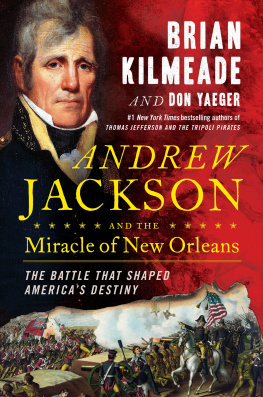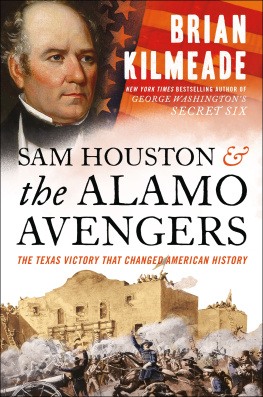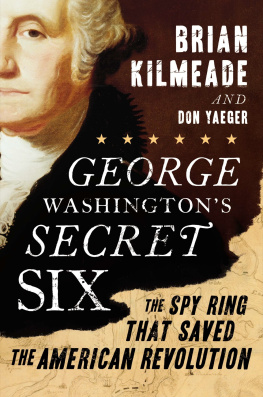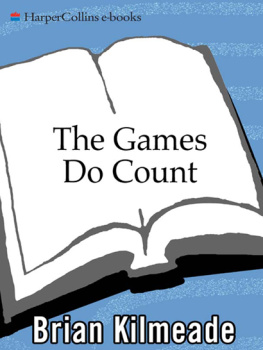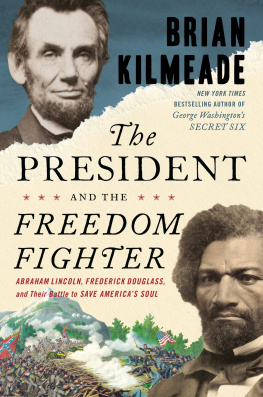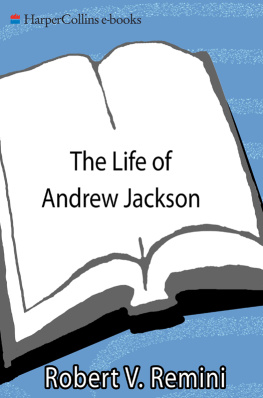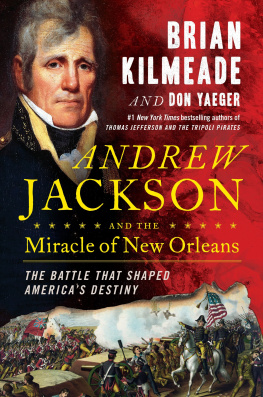Brian Kilmeade - Andrew Jackson and the Miracle of New Orleans
Here you can read online Brian Kilmeade - Andrew Jackson and the Miracle of New Orleans full text of the book (entire story) in english for free. Download pdf and epub, get meaning, cover and reviews about this ebook. year: 2017, publisher: Penguin Publishing Group, genre: History. Description of the work, (preface) as well as reviews are available. Best literature library LitArk.com created for fans of good reading and offers a wide selection of genres:
Romance novel
Science fiction
Adventure
Detective
Science
History
Home and family
Prose
Art
Politics
Computer
Non-fiction
Religion
Business
Children
Humor
Choose a favorite category and find really read worthwhile books. Enjoy immersion in the world of imagination, feel the emotions of the characters or learn something new for yourself, make an fascinating discovery.
- Book:Andrew Jackson and the Miracle of New Orleans
- Author:
- Publisher:Penguin Publishing Group
- Genre:
- Year:2017
- Rating:5 / 5
- Favourites:Add to favourites
- Your mark:
- 100
- 1
- 2
- 3
- 4
- 5
Andrew Jackson and the Miracle of New Orleans: summary, description and annotation
We offer to read an annotation, description, summary or preface (depends on what the author of the book "Andrew Jackson and the Miracle of New Orleans" wrote himself). If you haven't found the necessary information about the book — write in the comments, we will try to find it.
Andrew Jackson and the Miracle of New Orleans — read online for free the complete book (whole text) full work
Below is the text of the book, divided by pages. System saving the place of the last page read, allows you to conveniently read the book "Andrew Jackson and the Miracle of New Orleans" online for free, without having to search again every time where you left off. Put a bookmark, and you can go to the page where you finished reading at any time.
Font size:
Interval:
Bookmark:
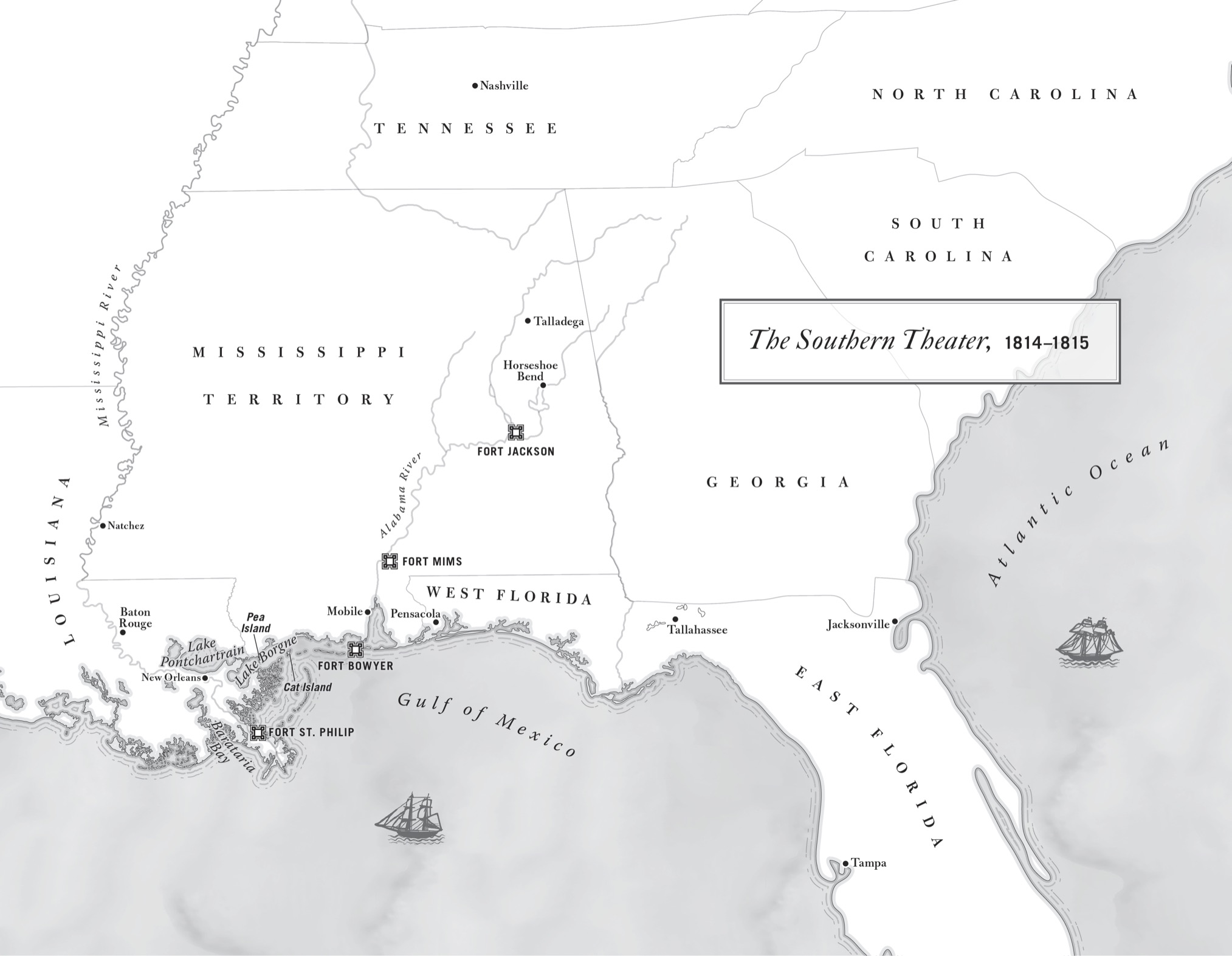

Thomas Jefferson and the Tripoli Pirates
George Washingtons Secret Six


An imprint of Penguin Random House LLC
375 Hudson Street
New York, New York 10014

Copyright 2017 by Brian Kilmeade and Don Yaeger
Penguin supports copyright. Copyright fuels creativity, encourages diverse voices, promotes free speech, and creates a vibrant culture. Thank you for buying an authorized edition of this book and for complying with copyright laws by not reproducing, scanning, or distributing any part of it in any form without permission. You are supporting writers and allowing Penguin to continue to publish books for every reader.
While the author has made every effort to provide accurate telephone numbers, Internet addresses, and other contact information at the time of publication, neither the publisher nor the author assumes any responsibility for errors or for changes that occur after publication. Further, the publisher does not have any control over and does not assume any responsibility for author or third-party Web sites or their content.
LIBRARY OF CONGRESS CATALOGING-IN- PUBLICATION DATA
Names: Kilmeade, Brian, author. | Yaeger, Don, author.
Title: Andrew Jackson and the miracle of New Orleans : the battle that shaped Americas destiny / Brian Kilmeade and Don Yaeger.
Description: New York, New York : Sentinel, an imprint of Penguin Random House, 2017. | Includes bibliographical references and index.
Identifiers: LCCN 2017027754 | ISBN 9780735213234 (hardcover) | ISBN 9780735213258 (epub)
Subjects: LCSH: New Orleans, Battle of, New Orleans, La., 1815. | Jackson, Andrew, 17671845Military leadership. | GeneralsUnited StatesBiography. | United StatesHistoryWar of 1812Campaigns.
Classification: LCC E356.N5 K55 2017 | DDC 973.5/239dc23 LC record available at https://lccn.loc.gov/2017027754
Map illustrations by Daniel Lagin
Version_1
To the unsung men and women whose faithful military service has kept us free and made generals like Jackson famous. Your names and faces may not be known by the world, but youll never be forgotten by me.
BK
Our situation seemed desperate. In case of an attack, we could hope to be saved only by a miracle, or by the wisdom and genius of a commander-in-chief. Accordingly, on his arrival, [Jackson] was immediately invested with the confidence of the public, and all hope centered in him. We shall, hereafter, see how amply he merited the confidence which he inspired.
Major Arsne Lacarrire Latour
Historical Memoir of the War in West Florida and Louisiana in 181415: With an Atlas (1816)
I n the spring of 1781, the redcoats arrived in upland Carolina, and they brought terror with them. As they searched the countryside for the rebels, they turned the region the Jackson family called home into an armed camp. Elizabeth Jacksons youngest son, Andrew, though barely fourteen years of age, hated their presenceand quickly learned just how costly the fight for liberty could be.
On April 9, Andy and his brother, Robert, two years older, earned the wrath of the invading force by joining a battle to defend the local meetinghouse against a band of Tories reinforced by British dragoons. The fight went badly for the Americans, but the brothers, unlike a cousin who was severely wounded and captured, were lucky. They escaped and, after spending a night hiding in the brush, the two Jackson boys managed to reach their cousins home to deliver the news of his fate. Once there, however, their luck ran out: a Tory spy spotted their horses and informed the British of their whereabouts.
A lesson in the cruelties of war was soon delivered. As the Jackson brothers stood helplessly at the point of British swords, the enemy set about destroying their aunt and uncles home. Determined to make an example of these rebels, the redcoats shattered dishes. They ripped clothing to rags. They smashed furniture. Then, with the house in ruins, the commanding officer decided upon one more humiliation. He chose Andy Jackson as his target.
He ordered tall and gangly Andy Jackson to kneel before him and clean the mud from his boots. The boy refused.
Sir, I am a prisoner of war, and claim to be treated as such.
Enraged by the young Americans defiance, the British officer raised his sword and brought it down on Jacksons head. Had Andy not raised his arm to deflect the blow, his skull might have been split open. As it was, the blade gashed his forehead and sliced his hand to the bone. Not satisfied at drawing blood from Andy, the soldier turned and slashed at his brother, tearing into his scalp, leaving him dazed and bleeding.
No one dressed their wounds. Instead, the Jackson brothers were marched forty miles, with neither food nor water, to join more than two hundred other rebellious colonists in a prison camp in Camden. There they were fed stale bread and exposed to the smallpox that raged among the prisoners kept in tightly packed conditions.
Their mother, Elizabeth Jackson, had already lost too much. Her husband, Andrew Jackson Sr., had worked himself to death shortly before Andrew was born, leaving the pregnant Elizabeth with two, soon to be three, young sons in the rugged wilderness of upland South Carolina. She had raised the baby and his brothers as best she could and tried to protect them from the dangers of the war, but the boys had joined the fight despite her pleas. Hugh, the oldest, had died at age sixteen of heat exhaustion after a battle the year before. Elizabeth was not about to lose her remaining sons now.
Traveling the long distance to their prison, she managed to persuade their jailers to include them in a prisoner exchange. But freedom didnt mean safety. Robert had fallen dangerously ill, his wound infected, and the family of three had many miles to travelon just two horses. Robert, delirious, rode one, and the exhausted Elizabeth the other.
Andrew walked. He made the journey barefoot, since the British had taken his shoes. Although all three made it home through driving rains, Robert died two days later. Elizabeth had no time to nurse her griefor her remaining son. As Andrew recovered from a fever, she set off for Charleston, where two of the nephews she helped raise were prisoners. She would never return. After completing a 160-mile journey, much of it through enemy territory, she became ill with cholera and died. Andrew would learn he was an orphan when a small bundle of her clothes was returned to his home.
Andrew Jackson would never forget the pain and humiliation of that summer. His father, mother, and brothers were dead. He himself bore the memory of British brutality, his forehead and hand forever marked by the British officers sword, a reminder of the callous cruelty that had destroyed his family.
His mother may have left him alone, but she had not left him without words to live by. Years later, he would report that she had told him, Make friends by being honest and keep them by being steadfast. Never tell a lie, nor take what is not your own, nor sue for slandersettle them cases yourself!
Font size:
Interval:
Bookmark:
Similar books «Andrew Jackson and the Miracle of New Orleans»
Look at similar books to Andrew Jackson and the Miracle of New Orleans. We have selected literature similar in name and meaning in the hope of providing readers with more options to find new, interesting, not yet read works.
Discussion, reviews of the book Andrew Jackson and the Miracle of New Orleans and just readers' own opinions. Leave your comments, write what you think about the work, its meaning or the main characters. Specify what exactly you liked and what you didn't like, and why you think so.

